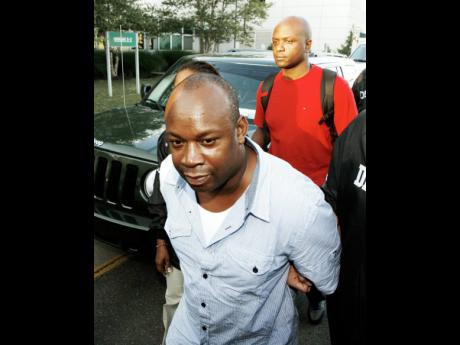Keith Clarke’s widow denies harbouring Dudus
Dr Claudette Clarke, the widow of businessman Keith Clarke, insisted on Monday that then fugitive Christopher ‘Dudus’ Coke was not “harboured” at the couple’s home in Kirkland Heights, St Andrew, in May 2010 when a deadly police-military raid claimed the life of her husband.
The 65-year-old retired senior education officer, who has been giving evidence in the murder trial of Corporal Odel Buckley, Lance Corporal Greg Tinglin and Private Arnold Henry, remained grounded in her stance during cross-examination from defence attorney Valerie Neita Robertson, KC, in the Home Circuit Court in downtown Kingston.
“Were you and your husband harbouring Dudus and seven other men in your premises that night?” Neita Robertson asked.
Dr Clarke responded instantly: “No, Madam. I don’t know that person. I’ve never met him and I don’t know him. He was not there at my house at any time, Madam.”
The attorney then suggested to her that “intelligence” indicated that Coke, who was wanted by United States authorities for drug and gunrunning offences, was there.
Prior to this point in the hearing, Neita Robertson also asked Dr Clarke whether she was aware that it is an offence to “harbour wanted men or criminals”.
“I’m aware of it, but I’m wondering why I was not arrested then because I was in that house as well,” Dr Clarke responded.
“Oh, you are fortunate,” Neita Robertson responded.
Dr Clarke also insisted that she did not see her husband fire his weapon during the raid, but that he was prepared to defend his family from “criminals” who they believed had invaded their premises.
During her cross-examination by Peter Champagnie, KC, who questioned her regarding the number of soldiers or police who entered her room at the time of the raid, he insisted that she give a number, given that three men were accused of the murder.
“This is the suggestion. Things happened so very quickly, Dr Clarke, that you were not even able to say just about, in the way of estimate, as to how many members of the security forces entered your room before your husband was shot. Do you agree with that?” Champagnie asked.
She responded, “Yes, Sir.”
He further pressed by saying that at least on one occasion, she had the opportunity to speak about this case by giving evidence during the preliminary hearing, where she said, “At the time they entered, about four, three, or, possibly, five, entered the room.”
“Do you remember saying that?” Champagnie asked, to which she responded, “I did not count, Sir.”
“If it’s in my statement, Sir, I would have said that,” Dr Clarke insisted on answering, instead of a direct yes or no.
Champagnie continued to press by asking whether in a previous statement she “mentioned, among other things”, that she noticed about six armed soldiers entering her bedroom before her husband was shot.
“Is that true? Is that true or false?” Champagnie asked.
Again, instead of answering “yes” or “no”, Dr Clarke, who was at the point of breaking down, said: “Sir, everything was happening so fast. The soldiers were coming in and, I shouldn’t say soldiers, gentlemen were coming in and out of the room. Sir, everything was happening [fast]. My husband got shot and was on the floor, Sir. So, Sir, I was not in the mood to count.”
Clarke, a 63-year-old chartered accountant at the time, was shot 21 times.

